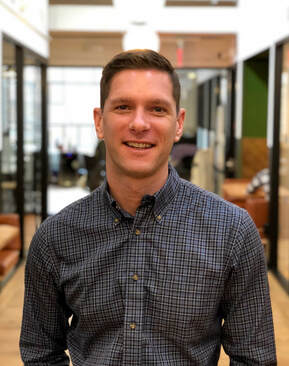 Brad Rathgeber Brad Rathgeber It is now six months to the day when many of our world’s were flipped upside down by the coronavirus into a seemingly never ending cascade of changes to our lives: new normals, new-new normals, unprecedented challenges, and precedent setting opportunities. At first, we all thought that on-campus schools would have to move online for a couple of weeks or maybe a month. Next, we realized that the rest of the academic year would have to be online. And finally, we realized the 2020-2021 school year would be like no other. Over the last six months, we’ve helped our 229 consortium schools and hundreds of other schools with a transition to distance learning and now to hybrid learning. Thousands of educators took our professional development courses. I can’t count the number of conversations I’ve had with school heads, association leaders, and academic leaders. In those discussions, I’ve noticed themes emerging; I thought I’d share them today, the start of school for so many. It’s Like Running a Start-Up In conversations with colleagues, I hear comments such as: “We tried this out; didn’t work. Had to try something else. That worked for a while, but then went to plan C.” We’re in a state of constant iteration. Trial, failure, another failure, marginal success, more failure, more success. Many schools are in a better position to work through this development cycle because they have implemented design thinking strategies at their school. And yet, this is different from typical design work in schools, because this situation was forced on us. Eleven years ago, I helped to found what is now One Schoolhouse. For the first two years, there were many sleepless nights, constant second-guessing, numbers swimming around in my head trying to create a business model that would work, learning that some who I thought were allies weren’t, and developing new bonds with colleagues. I was constantly learning and growing, and I was constantly distracted by work, which took a toll on relationships and friendships. The high points are higher; the low points are lower. It was exhausting. Sound familiar? Everyone is working hard right now, but patience is running low. Last spring, there was a palpable feeling that “we’re all in this together.” There was grace and gratitude from families who knew that distance learning is not what we set out to do. These days, grace and gratitude are gone. We’re Changing, Fast When a start-up is successful it changes the status quo -- what were accepted norms are no longer boundaries. We see that today, too. It’s almost as if the changes we imagined five to ten years out are now the reality today. The successful post-COVID school isn’t asking itself, “How can we get back to normal?” It is asking, “How should we implement what we’ve learned to be different and better moving forward?” Online learning, for example, is here to stay. Schools will need to consider the extent to which hybrid options remain in a post-COVID world, asking questions like:
Colleges and universities have learned over the last ten years that just because there is a physical campus in Cambridge or Chapel Hill or Berkeley, it doesn’t mean that all learning from that university has to take place there. Successful independent schools are learning that lesson today (if they hadn’t already). This summer, we trained thousands of teachers to prepare for a hybrid learning school year. I’m sure many teachers thought they were coming to us to learn a new technology or learn how to be better on video. But instead, they learned that hybrid and online learning is not about technology or bells-and-whistles; it’s about planning and purpose and connection and mastery--all skills and habits that are essential to good classroom teaching, too. The successful post-COVID school will help teachers transfer newly developed skills into their on-campus classrooms, transforming knowledge acquisition, assessments, reflection, and mastery for the next generation of students. Where We Can Provide Structures, We Should Back at the beginning of the coronavirus pandemic, we encouraged schools to follow three general guidelines: be calm and pause; be straightforward and clear; and create simple solutions. These tenets still hold. In times of increased stress and anxiety people cannot process information in the ways that they normally can. Systems have to be simple, and to the extent possible routines should be established. My friend and colleague, Lisa Damour, made this point in her fantastic new parenting podcast, Ask Lisa. She notes that one of the keys to parenting during the pandemic is to offer your child incredible warmth and steady structures. For classroom teachers, it is important to keep this in mind, too. Develop a trust relationship built on each student knowing that the teacher is a partner in the learning process, using easy to follow structures that help a student navigate through a course. This summer, we advised schools to build a course template and learning cadence that could be followed across an entire school (or at least a division). These types of structures are incredibly important for creating normalcy and allowing students to find success in uncertain times. It seems this advice, warmth and structure, can apply to ourselves, too. We need to be kind to ourselves as the pressures mount and change. And, we need routines, including and especially routines for self-care. I’ll be sharing more thoughts in our Academic Leaders Webinar next week on September 16 at 12noon ET - recording posted below! I’ll hope you’ll join me then. Register for our webinar series here: https://bit.ly/3jVnJyC
0 Comments
Leave a Reply. |
Don't miss our weekly blog posts by joining our newsletter mailing list below:AuthorsBrad Rathgeber (he/him/his) Archives
July 2024
Categories |

 RSS Feed
RSS Feed